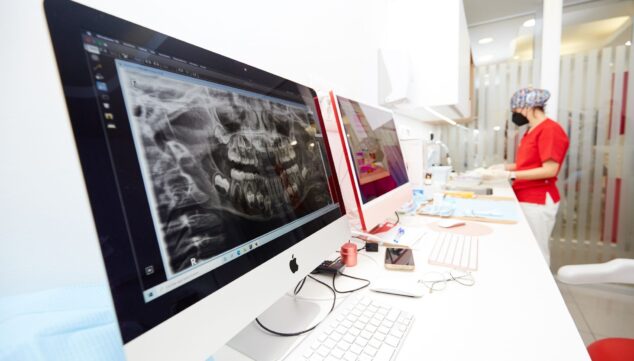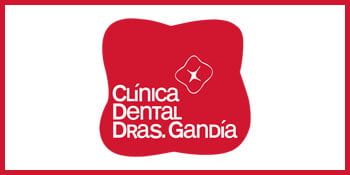Pregnancy is a time when you should pay special attention to caring for your teeth and gums. During this process, the body undergoes hormonal changes that can increase the risk that you will develop a gingivitis.
At Lóleo Eventos, Dental Clinic Drs. Gandia They know this problem well, which is why they give you a series of tips that you should take into account during this gestation period.

What is gingivitis?
La gingivitis It is an inflammation and redness of the gums that can cause general pain of the mouth and a greater facility for bleeding, in addition, it is a principle of periodontal disease commonly known as pyorrhea.
Gum problems often appear during second month of pregnancy, are usually maximal in the eighth month and improve after delivery. If before pregnancy you already had inflammation of the gums or periodontal disease, they will probably worsen.
During the second quarter (from week 13 to 28) a “pregnancy granuloma”. This is a localized swollen lesion on the gum that bleeds easily. Most are reduced or disappear after delivery.
The hormonal changes of pregnancy cannot be controlled, but we can take care of other factors that cause gingivitis, which are mainly: Dental plaque (you should clean your teeth every day and between them with interproximal brushes) and the tartar (Perform regular mouth cleanings with your dentist).

Contrary to popular belief, the baby does not get calcium from its mother's teeth. When the baby needs calcium, she gets it through the diet or from the mother's bones, but never from her teeth. The popular saying that "every pregnancy cost me a tooth" is also not true. If you are developing more cavities it may be due to:
- A neglect of your oral hygiene with the consequent accumulation of bacterial plaque. The bacteria in dental plaque use the sugar you eat to produce acids that attack the enamel of your teeth causing cavities.
- Change in dietary habits and schedules. As your abdomen increases in size, you will begin to eat small amounts of food more frequently because you will quickly feel full. You should avoid eating sweet and/or sticky foods (candies, packaged juices, soft drinks, pastries...)
- Vomiting associated with pregnancy or reflux of stomach acid. Stomach acid causes an erosion of tooth enamel making it more susceptible to decay.

Therefore, if you are pregnant, make sure you practice a good oral hygiene, which involves brushing your teeth and performing interdental cleanings daily. Also, if you combine this routine with a healthy, balanced diet and regular visits to the dentist, not only will you prevent dental problems, but you will contribute to the healthy development of your baby.

Visit Dental Clinic Drs. Gandia, its professional team will solve all your doubts.
Contact Doctoras Gandía Dental Clinic
| Glorieta del País Valencià, 6 View in Google Maps | |
| (965) 781 827 | |
| (965) 780 069 | |
| (677) 209 799 | |
| Monday to Friday from 9 a.m. at 14pm and from 16pm to 20pm. | |
| dentalclinicdoctorasgandia.com | |
| Gandia | |
| gandia | |
| info@clinicadragandia.es | |
| "Salud" |






